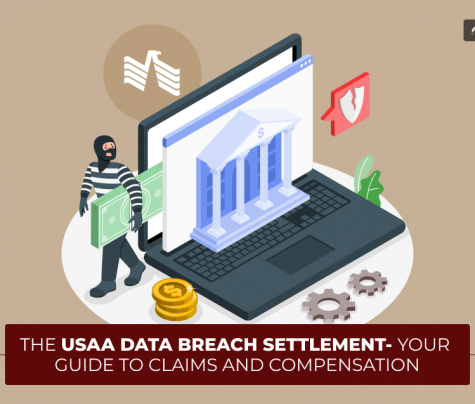
In case you were wondering what skip tracing is, you are not the only one searching for the same…
It is a specialist investigative method to find people who appear to have vanished frequently to avoid debts, legal duties, or other commitments.
In several circumstances, including locating debtors for collection agencies, seeking witnesses for court cases, reconnecting families, or even supporting criminal investigations, the information obtained through skip tracing can be quite helpful.
Skip tracing’s ethical ramifications and privacy issues highlight how crucial it is to conduct these investigations sensibly and respect people’s right to privacy.
Keep on reading to know more…
What is Skip Tracing: Your ULTIMATE Tool to Debt Collection?
Skip tracing is like playing detective, but instead of solving crimes, you’re tracking down people who’ve gone missing, or in this case, people who’ve disappeared to avoid paying their debts.
It’s a valuable tool for debt collectors, helping them locate debtors and recover outstanding payments.
There are several reasons why skip tracing is important. For instance, it helps in:
- Recovering debts: By locating debtors, collectors can increase the chances of recovering outstanding payments. This is obviously important for the creditor, but it can also benefit the debtor by preventing their debt from growing and potentially leading to more serious financial problems.
- Preventing fraud: Skip tracing can help identify instances of fraudulent debt, such as when a debtor has used a fake identity. This can protect both creditors and other consumers from financial losses.
- Protecting creditors: By recovering debts, skip tracing helps protect the financial interests of creditors. This is particularly important for businesses and individuals relying on credit.
How Does Skip Tracing Work?
Good question. Let me explain. Skip tracers use several methods to find people to ensure the payment is fully made. Here is how they do it:
- Search public records: This includes databases like property records, voter rolls, court records, and even marriage licenses. Public records can provide valuable information about a person’s address history, family members, and other personal details.
- Check social media: Platforms like Facebook, LinkedIn, and Instagram can be treasure troves of information. A debtor might post photos of their new home, mention a new job, or even share their location.
- Use specialized databases: Some databases collect information on people who’ve moved frequently or changed their names. These databases can be particularly useful for tracking down debtors who have tried to hide their identity.
Hire private investigators: In some cases, private investigators can conduct more in-depth searches. They might use techniques like surveillance, background checks, or even interviews with neighbors or associates.
Benefits: How Can Skip Tracing Help You?

Skip tracing isn’t just for debt collectors. It’s also a valuable tool for real estate professionals and property owners.
For example, if you’re trying to sell a property, you might need to locate the previous owner to get the necessary documents or resolve outstanding issues. Skip tracing can help you find their current contact information.
Similarly, if you’re dealing with tenants who aren’t paying rent, skip tracing can help you locate them and recover the owed money. This can prevent financial losses and help you find new tenants.
Here are some of the benefits of skip tracing:
Debt Recovery:
Skip tracing is highly valuable in debt collection. When individuals default on loans or payments, they may try to disappear to avoid repayment.
Skip tracing helps locate these individuals, facilitate communication, and eventually recover the debts owed.
This process can significantly improve the financial health of businesses and individuals who owe money.
Legal Compliance:
Skip tracing ensures compliance with regulations when conducted within legal boundaries.
Professionals in skip tracing must adhere to laws like the Fair Debt Collection Practices Act (FDCPA) and the Gramm-Leach-Bliley Act (GLBA) to protect consumer privacy rights.
Compliance helps in avoiding legal issues while searching for individuals.
Asset Recovery:
Skip tracing is useful for more than simply finding people; it may also be used to find and retrieve assets.
This is especially helpful when people have relocated or concealed assets to avoid debt or legal responsibilities.
It aids in locating real estate, automobiles, or other assets that may be used as collateral for court settlements or debt payback.
Risk Mitigation:
Skip tracing helps evaluate the risks involved in commercial or lending operations.
Verifying people’s identities and whereabouts lowers the chance of lending to possible defaulters or doing business with dubious people.
It reduces financial risks by assisting organizations in making well-informed decisions.
Reconnecting with Individuals:
In scenarios beyond debt collection, skip tracing can also be used to reconnect with lost contacts or relatives.
For instance, skip-tracing techniques can help reunite families or friends in cases of missing persons or estranged family members, providing closure or support in various personal situations.
Enhanced Efficiency:
With technological advancements and data analytics, skip-tracing processes have become more efficient.
Access to vast databases, social media platforms, and advanced search algorithms streamlines the search process, reducing the time and resources required to locate individuals.
Fraud Prevention:
Skip tracing serves as a tool for fraud prevention. It helps verify the identities of individuals, uncover discrepancies, and identify potential instances of identity theft or fraudulent activities.
By confirming the accuracy of provided information, it aids in maintaining the integrity of transactions and preventing financial losses.
Customer Service Improvement:
Skip tracing improves customer service in some sectors, such as banking and insurance.
It guarantees that messages are received by the right people, avoiding miscommunications from out-of-date contact details and enhancing the general client experience. Professional skip-tracers and private detectives frequently combine several methods.
They may use sophisticated search algorithms to look through utility bills, financial records, and public records for any indication of the person’s whereabouts.
They may also physically canvass communities, carry out stakeouts, or employ surveillance techniques to obtain more concrete leads.
Skip tracing can discover witnesses, missing persons, or even heirs in court proceedings. In contrast, it is mainly used to find people who have fallen behind on their financial responsibilities.
The success of skip tracing often relies on the expertise, persistence, and creativity of the professionals involved, as well as the availability and accuracy of information sources.
Is Skip Tracing Legal? Understanding the Rules
Skip tracing is a powerful tool, but using it legally and ethically is important. The laws governing skip tracing can vary from state to state, so it’s crucial to understand the specific regulations in your jurisdiction.
Generally, skip tracing is legal as long as it is done in a way that complies with the following laws and regulations:
Fair Debt Collection Practices Act (FDCPA)
This federal law sets out rules for debt collectors, including restrictions on how they can contact debtors and what information they can collect.
For example, the FDCPA prohibits debt collectors from making calls before 8 a.m. or after 9 p.m. unless the debtor has consented.
It also prohibits debt collectors from using abusive, unfair, or deceptive tactics to collect debts.
Telephone Consumer Protection Act (TCPA)
This law prohibits unsolicited telemarketing calls and text messages. Debt collectors must comply with TCPA rules when contacting debtors by phone or text.
For example, the TCPA prohibits debt collectors from calling numbers on the National Do Not Call Registry without the debtor’s consent.
It also requires debt collectors to identify themselves and the purpose of the call.
Privacy laws
Various state and federal laws protect people’s privacy. Debt collectors must be careful not to violate these laws when collecting information.
For example, the Privacy Act of 1974 limits the government’s use of personal information. The Gramm-Leach-Bliley Act requires financial institutions to protect the confidentiality of their customers’ nonpublic personal information.
State laws
In addition to federal laws, state-specific laws may regulate skip tracing. It’s important to be aware of these laws and comply with them.
For example, some states have laws that limit the number of times a debt collector can contact a debtor in a given period.
Other states have laws that require debt collectors to provide debtors with certain information, such as the creditor’s name and the debt amount.
Read Also: What Does A Debt Relief Lawyer Do? Top 10 Best Debt Relief Lawyers in the US
Ethical Skip Tracing to Your Rescue!
Now that you know what skip tracing is, there is one thing that you must keep in mind. And THESE are about the ethical ways to deal with it.
Skip tracing is a complicated process that uses various tools and techniques to find people. It’s a useful set of skills applied in various industries, but it calls for a responsible attitude to ensure that it is carried out morally and legally.
You must follow these moral and legal guidelines to make sure your skip-tracing procedure runs more smoothly:
- Get written consent: Before contacting a debtor, obtain their written consent. This can help protect you from legal claims.
- Avoid harassment: Do not harass or threaten debtors. This is illegal and can have serious consequences.
- Be respectful: Treat debtors respectfully, even if they are not cooperative.
- Verify information: Before taking action based on your collected information, verify it to ensure accuracy.
- Hire a professional: If you’re unsure about the legal and ethical rules of skip tracing, hiring a professional skip tracer is a good idea. They can help you navigate the complexities of the law and ensure that you comply with all relevant regulations.
Read Also:
- 5 Things To Be Included In An Employment Contract For Freelancers
- Everything You Need To Know About Labor Law Attorneys
- 7 Effective Negotiation Techniques For Lawyers











0 Reply
No comments yet.